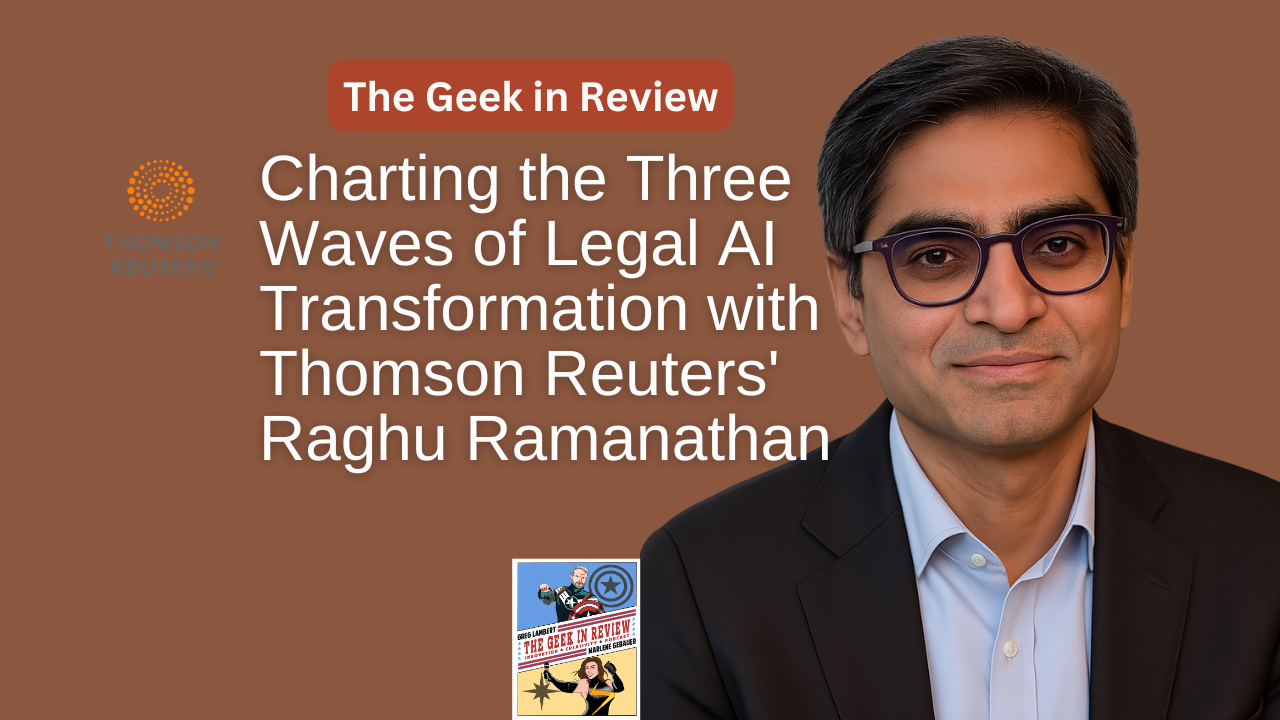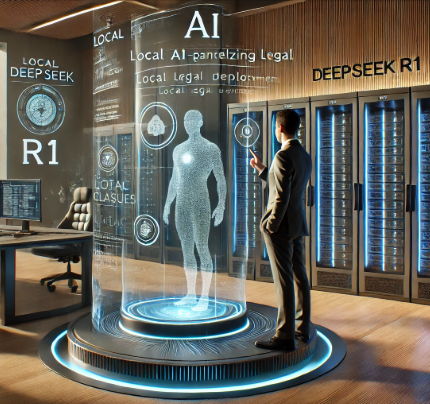This week we welcome Raghu Ramanathan, President of Legal Professionals at Thomson Reuters, for an insightful discussion on the profound impact of Artificial Intelligence (AI) on the legal industry. Bringing a fresh perspective shaped by his extensive background in technology leadership at companies like SAP and strategy consulting with McKinsey, Raghu shares why he believes the legal sector, alongside healthcare, stands at the forefront of the AI revolution. His journey into the legal tech world, driven by the transformative potential of AI, sets the stage for a deep dive into current trends, future predictions, and the strategic initiatives shaping the future of law.
Central to the conversation is Raghu’s updated perspective on the evolution of law firms, revisiting predictions he first made in 2017. He outlines a compelling framework describing “three waves” of AI adoption currently underway. The first wave, “Optimization,” which many firms are experiencing now, focuses on using AI to enhance existing workflows, making tasks faster and more efficient. The second wave, “Re-engineering,” involves fundamentally rethinking processes, staffing models (including the traditional pyramid structure), pricing strategies, and the very nature of legal work to leverage AI’s capabilities more deeply. Looking further ahead, the third wave anticipates the emergence of entirely “New Business Models,” where law firms might offer tech-based services, explore adjacent business lines, embrace true outcome-based pricing, and potentially even reshape the legal value chain.
The discussion delves into the significant implications these waves have for law firm talent and structure. Raghu predicts a shift in the traditional law firm pyramid, potentially leading to leaner associate ranks but a greater need for experienced partners and, crucially, integrated tech talent. This necessitates not only attracting technologists but also potentially rethinking firm equity structures to retain them. Furthermore, the skill set required for the “lawyer of the future” is evolving; proficiency in delegation to AI tools, broader unstructured problem-solving, and embracing technological integration will become paramount, demanding changes in legal education and professional development.
Thomson Reuters is actively navigating and shaping this transformation, particularly through its AI platform, CoCounsel. Raghu highlights the rapid evolution of CoCounsel, emphasizing the continuous development of new “skills”—capabilities ranging from summarization and research to drafting and complex analysis like the innovative “Claims Explorer.” He explains TR’s strategy involves integrating proprietary data (like Westlaw), client-provided documents, and public information, leveraging advancements in Large Language Models (LLMs) from various providers to deliver comprehensive and powerful AI assistance. Prioritizing new skill development involves balancing significant client value with technical feasibility, constantly informed by close collaboration with innovation-focused customers.
Beyond law firms, the conversation explores the crucial role and adoption of AI within the court system. Raghu notes a surprising enthusiasm among courts, driven by the urgent need to address growing case backlogs and enhance access to justice within tight budgets. He points to Thomson Reuters’ significant partnerships, including a major agreement to deploy AI tools across the US federal courts and ongoing collaboration with the National Center for State Courts (NCSC), which is fostering education and policy discussions among judges and court staff nationwide. Complementing product innovation, TR’s expanded “Customer Success” initiative underscores the importance of user adoption, providing dedicated resources and best practices to help lawyers and legal professionals effectively integrate AI tools into their daily workflows, ensuring technology translates into tangible value.
Concluding with a look ahead, Raghu anticipates that smaller and mid-sized law firms may initially leverage AI more aggressively as a competitive equalizer, pushing larger firms to make bolder, more strategic moves beyond simple optimization. He stresses that the ultimate differentiator for success in the AI era will likely be less about the technology itself and more about effective change management—strategic clarity, operational implementation, and fostering a culture that embraces new ways of working. The rapid pace of AI adoption already witnessed in the legal sector signals that this transformation is not a distant prospect but a present reality reshaping the industry at an unprecedented speed.
Read the Whitepaper: “2025 Generative AI in Professional Services Report“
Listen on mobile platforms: Apple Podcasts | Spotify | YouTube
[Special Thanks to Legal Technology Hub for their sponsoring this episode.]
Blue Sky: @geeklawblog.com @marlgeb
Email: geekinreviewpodcast@gmail.com
Music: Jerry David DeCicca









